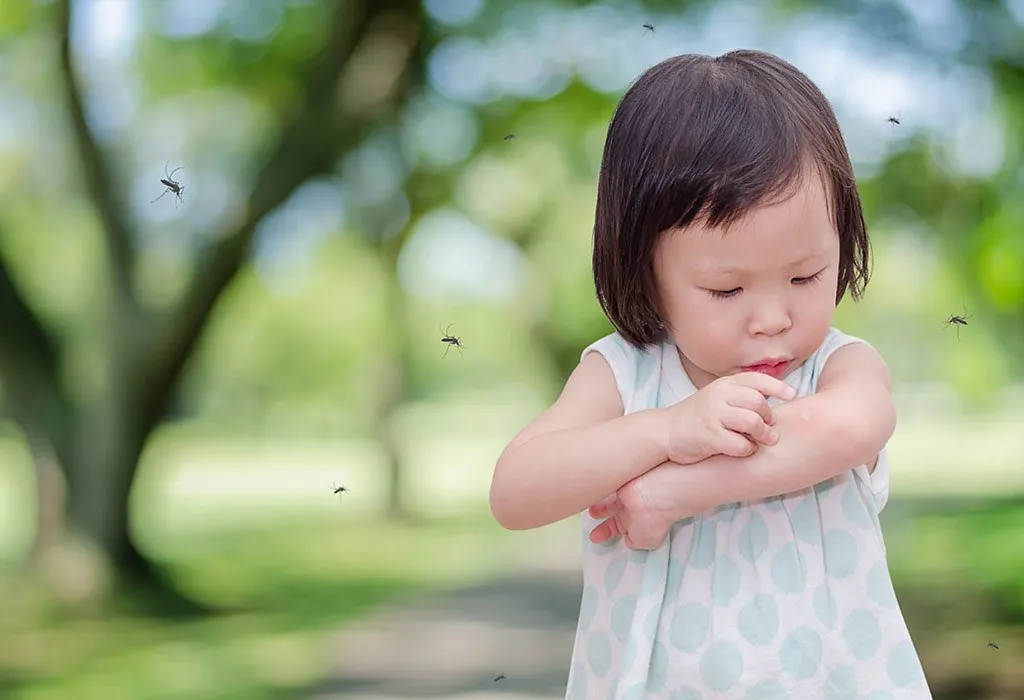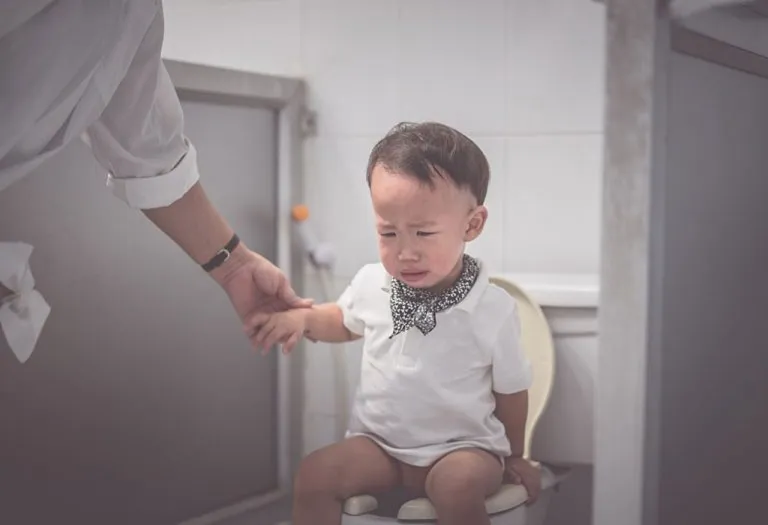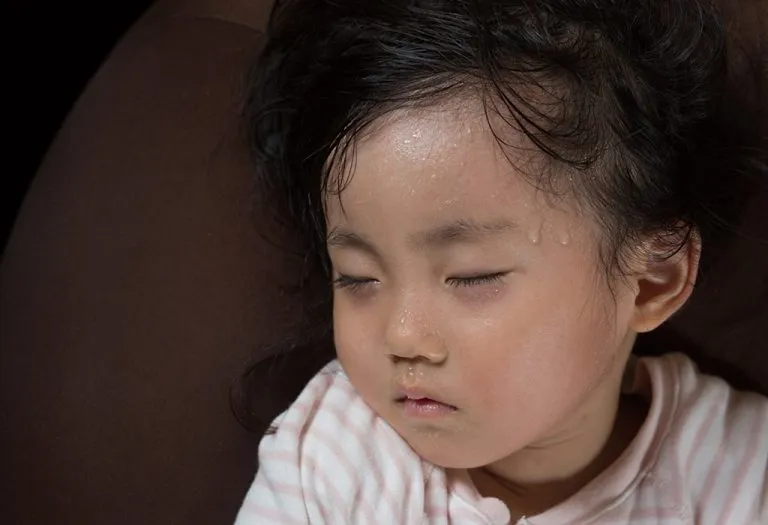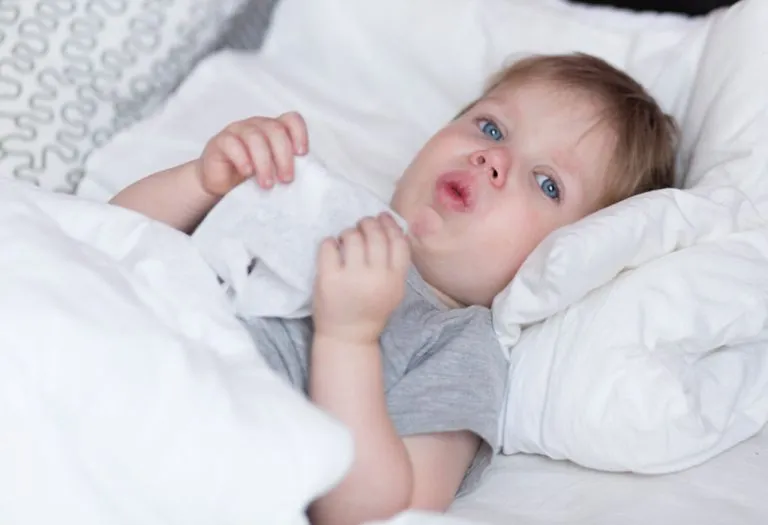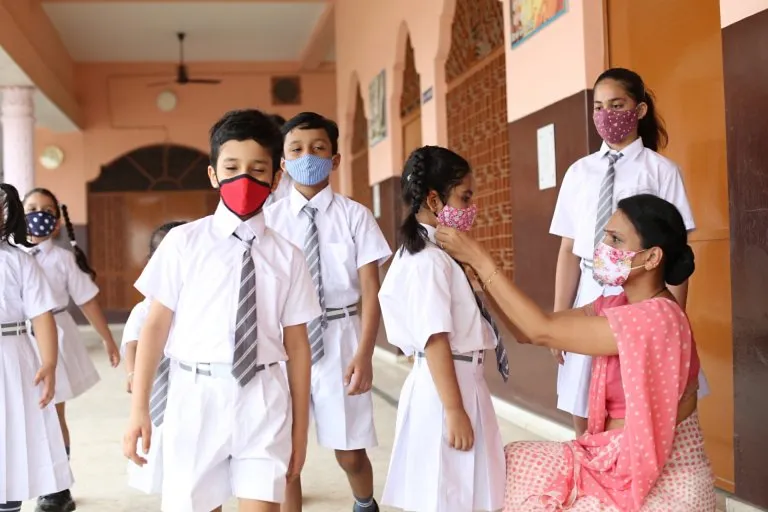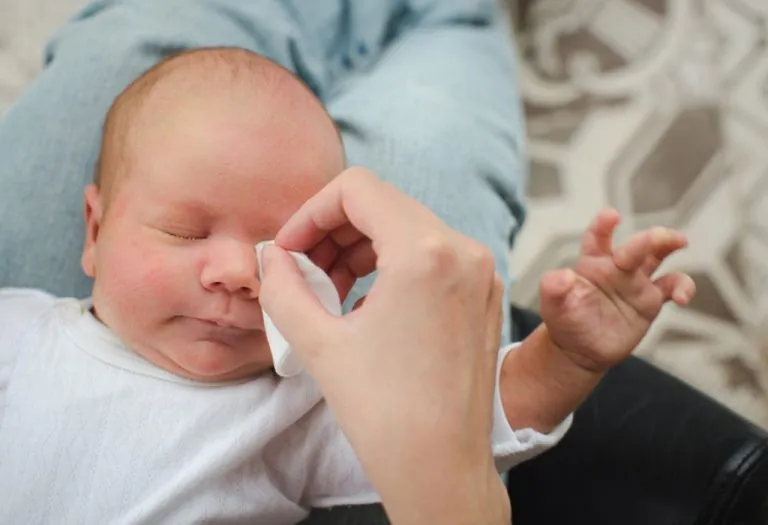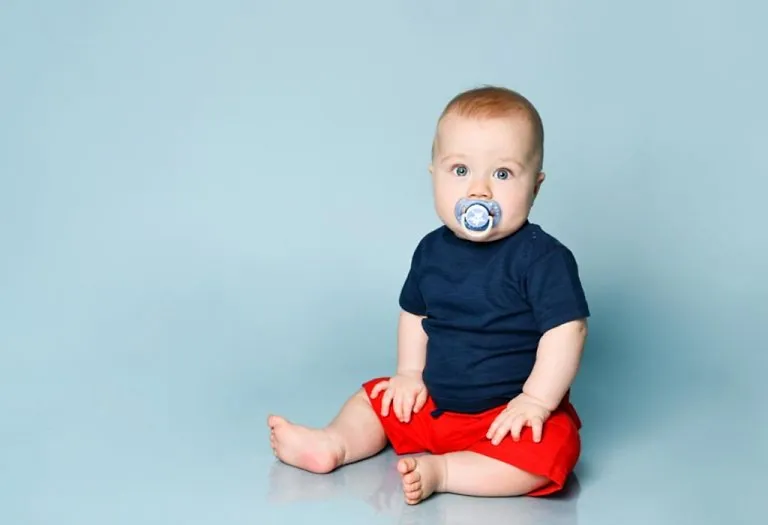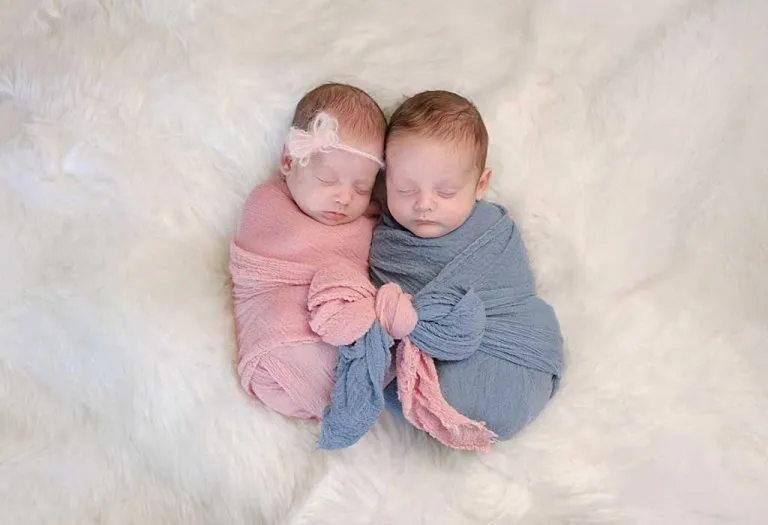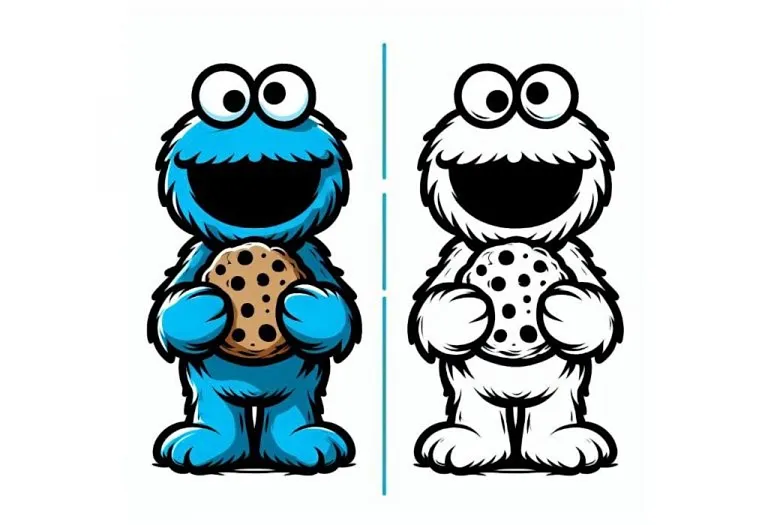Dengue in Babies and Toddlers

In the early stages of their lives, babies are prone to a variety of illnesses and diseases. Most of them are taken care of by ensuring the diet is appropriate. Therefore, infants should have enough breastfeeding sessions, and older babies/toddlers should have a balanced diet that consists of healthy, hygienic, home-cooked food. But, certain natural aspects cannot always be controlled, such as pests and insects. Mosquitoes are the primary suspects of these; they find their way easily into our homes and cause havoc. They are also responsible for causing a bunch of diseases, which can be quite harmful. In this article, we shall talk about Dengue, a mosquito-borne viral disease, its symptoms, diagnosis, treatment, etc. for babies and toddlers. Read on to know more.
What Is Dengue?
Dengue is a mosquito-borne viral disease that spreads through the bite of Aedes aegypti (a female mosquito). The virus causes hemorrhagic dengue fever, headaches, nausea, dizziness, etc. (more about the symptoms in the article below). If not treated well, dengue is known to manifest in a severe form, which is quite fatal.
Dengue cases are widely known around the country. Infants Under a year old have more chances of contracting dengue and reaching severity.
What Is Hemorrhagic Dengue Fever?
When dengue is not treated well, it begins to manifest itself in the form of a fever which lasts for about a week or so. During this period, the body undergoes a lot of conditions such as mild, moderate or high fever, intense bleeding, difficulty in breathing, rashes under the skin, nosebleed, cold, clammy skin, feeling of nausea and incessant vomiting. These are together termed as having contracted haemorrhagic dengue fever.
What Causes Dengue and How Does It Spread?
As mentioned earlier, the variant of the mosquito that spreads the dengue virus is Aedes aegypti. This mosquito can be easily identified by the white or silver stripes/scales on its body. The scales resemble the stripes on a tiger; therefore, it is also called a female tiger mosquito. The mosquito transmits the virus to humans when it carries the virus and bites them to drink the blood.
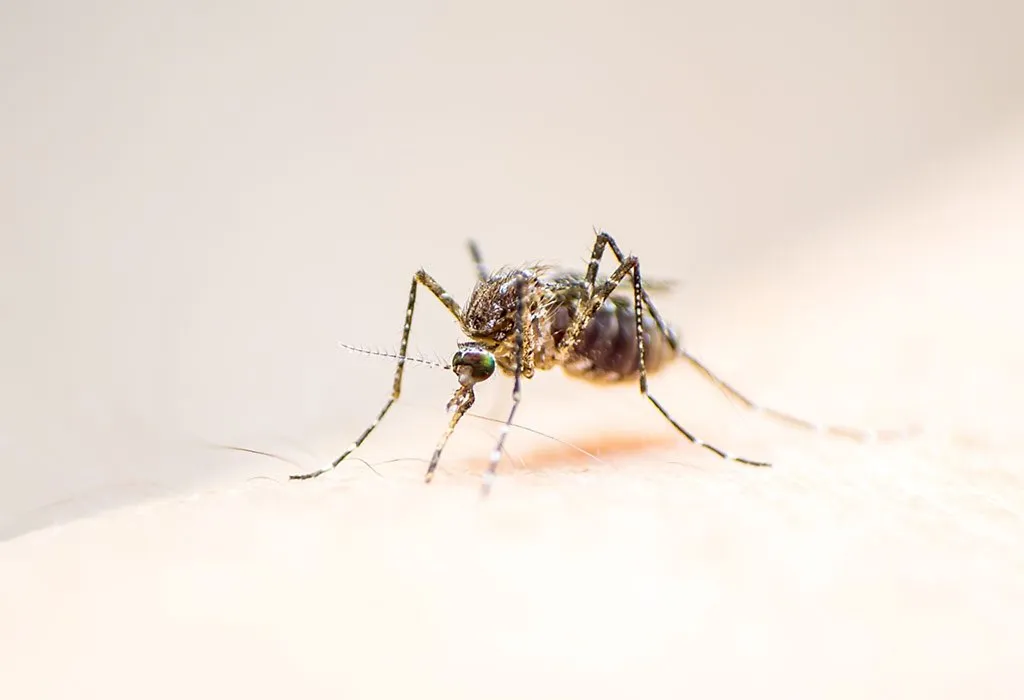
One of the specific tendencies of these mosquitoes is their affinity for warm and humid climate, which provides them with the ability to breed easily. This is why the onset of monsoons and the innumerable puddles of water lead to breeding of these mosquitoes quickly and risk the spread of dengue. Another behaviour to be factored in is their tendency to feed and bite other humans in the daytime. Most of the mosquitoes from other variants get active towards the evening and night and begin biting then.
Dengue is not contagious among human beings since it can infect a person only when a mosquito carrying that virus ends up biting the person.
Symptoms of Dengue in Babies and Toddlers
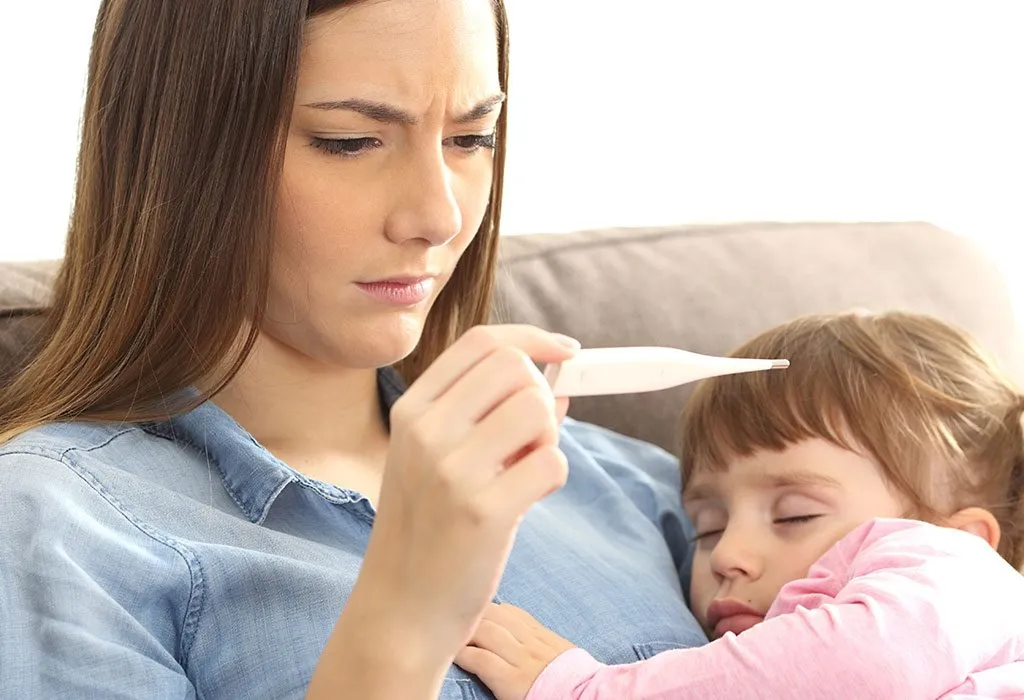
We’ve already mentioned some symptoms in the article above, but here is a detailed list of symptoms you must look out for if you suspect your child could have the dengue fever.
- Fever that appears suddenly and reaches high temperature very soon.
- The eyes start hurting a lot, especially in the region behind the eyeballs.
- Frequent headaches that are quite debilitating and severe.
- Constant feeling of nausea and dizziness, leading to discomfort, too.
- Frequent and incessant vomiting, which is sometimes even uncontrollable.
- Increasing body aches that highly affect the muscles and joints.
- The appearance of dengue rashes on babies following the fever.
- Nosebleeds in mild quantities.
- At times, babies can also experience bleeding in the gums.
Once babies or toddlers show signs of Dengue, you need to deal with it a tad bit differently. It is highly recommended that you visit a paediatrician immediately to get the treatment started, but you must also know how to deal with the symptoms until a diagnosis is made. We will talk more about that below.
How to Deal With Symptoms of Dengue in Infants and Toddlers
Intensely high temperature, body rashes, body ache, crying and vomiting are all strong signs of dengue. There are a few important things you must remember that can help you deal with the symptoms of dengue in your little one.
- There is no specific cure for dengue, although there are a number of medications available that help get the fever down and manage nausea. If prescribed and taken in the recommended dosages, these medicines can consequently assist in taking care of dengue, too.
- In any case, no medication that is meant for inflammations should be administered. They could further reduce the platelet count of your baby and result in a condition even severe than before.
- You must take your baby to the hospital immediately to get the diagnosis made, and treatment started as soon as possible.
On that note, let’s take a look at how the diagnosis is made and what the possible treatment options are for dengue in babies and kids.
Diagnosis of Dengue
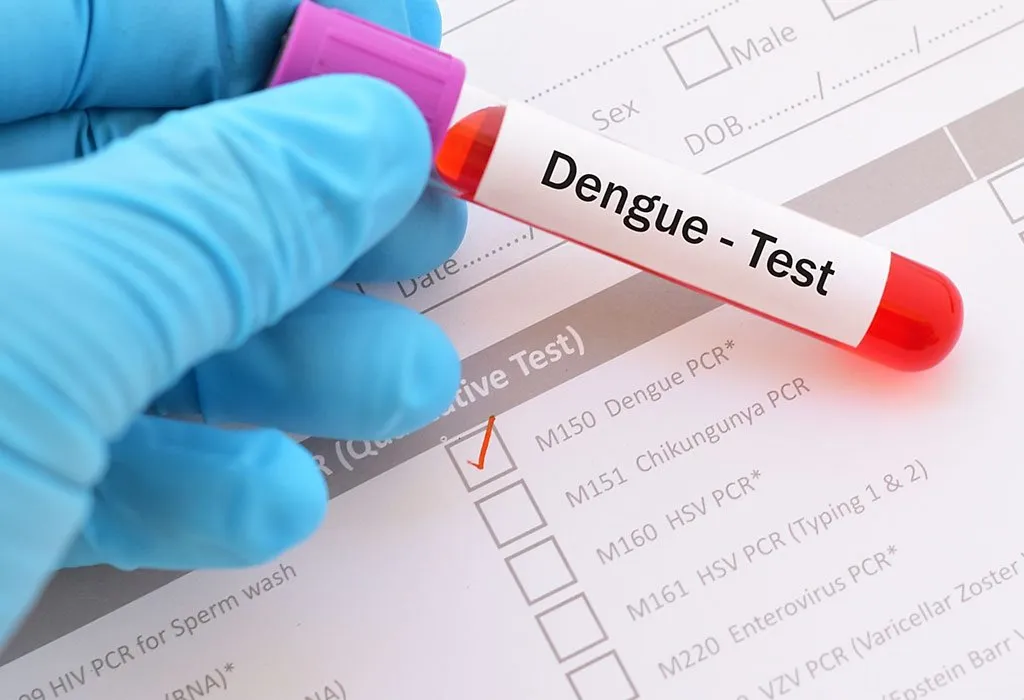
- One of the first things the doctor will do is to undertake a blood test of the baby. Blood samples will be acquired and sent to the lab to check for infections.
- The number of platelets in the blood is another marker for dengue. Any person contracting dengue suffers a huge drop in the platelet count that results in extreme weakness in the body.
- If your baby has a fever, the temperature of the baby would also be noted. An extremely high temperature that rises very quickly is a strong sign of the presence of dengue.
- The paediatrician might ask you to recall how the baby fell ill, and when did you first notice the temperature and how quickly it had risen.
- The paediatrician might also ask you about the surrounding conditions of your home or if you’ve recently travelled to a place where the baby was exposed to mosquitoes.
- Frequent vomiting could lead to dehydration. The paediatrician might recommend undertaking certain procedures to ensure it doesn’t cause further complications.
Dengue Fever Treatment for Babies and Toddlers
As mentioned before, there is no cure for Dengue. There are, however, multiple ways to reduce the symptoms, bring relief, and help the body fight the infection.
Taking enough rest is paramount. The body undergoes a lot of stress, and it needs enough rest to be able to recover. Frequent and incessant vomiting could also lead to dehydration; it is important for your child to remain hydrated, too. Therefore, the breastfeeding cycles will have to be increased for infants. For older babies, the fluid intake needs to be increased. In case your baby refuses to feed or is too weak to swallow food, the paediatrician might opt for intravenous nourishment alternatives to keep the electrolytic and hydration levels on point.
In order to combat fever, acetaminophen might be given. Consult a paediatrician before giving it to your baby, though. Also, stay away from administering any form of ibuprofen or aspirin. At times, even after the fever goes down, your baby might vomit incessantly. This could mean the onset of haemorrhagic dengue fever, and you must take your baby to the hospital immediately.
Dengue can add to the stress levels as there is no specific cure on it. However, there are ways dengue can be prevented. Read below to know more.
How to Prevent Dengue
Here are a few ways you can prevent dengue.
- Mosquitoes that spread dengue breed in fresh and stagnant water; therefore, it is important to ensure that there is zero presence of any uncovered stored water bodies in your house or in the surroundings close to your home. This includes terraces, gardens, and even your washrooms.
- Make use of mosquito repellents in the form of mats or vaporisers indoors to keep mosquitoes at bay. Using mosquito repellent creams and sprays might also be quite effective. Creams and sprays are perfect for keeping kids safe from mosquitoes when outdoors.
- Playing around with dirt and mud can make the body attract mosquitoes even more since mosquitoes tend to hover around in moist areas. Advise your kids to avoid playing certain games/sports or clean up immediately to avoid attracting the mosquitoes.
- Make sure your windows have a permanent mesh or make use of sliding mesh windows to prevent mosquitoes from entering the house.
- Dress your children in clothes that cover their bodies completely.
- Sleeping in beds that have mosquito nets is the best way to have an undisturbed and safe sleep.
Dengue can very quickly cause the health of a baby to deteriorate if left unchecked. With some simple measures, it is possible to prevent dengue to some extent. However, if your kid hasn’t been keeping well, keeping an open eye for signs of dengue and taking the right actions can help your baby heal faster.
Also Read:
Dengue in Children
Home Remedies of Dengue and Malaria for Kids
Malaria in Children – Causes, Symptoms & Treatment



